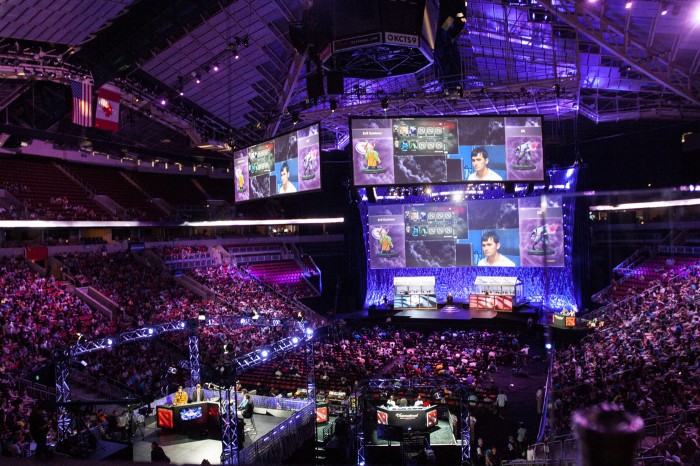For Years, China Felt Awkward About Dominating the Globe in E-Sports
If you are an elite video game player these days, the very best of the best, you could win millions of dollars at a single tournament. Or you could find yourself on the roster of an English Premier League soccer team. Such is the state of the world of e-sports, which has risen from obscurity to become not only a nerdy source of entertainment, but a huge business. In China, it’s even becoming a source of national pride.

It wasn’t always this way. Chinese teams have for years regularly competed in the very highest echelons of e-sports, including a tournament in Seattle known as The International, which this year boasted a total purse of over $20 million. And they have been dominant, claiming three of the last five championships in a strategy game called DOTA 2 (for Defense of the Ancients 2). But as a piece in Foreign Policy points out, Chinese culture has until very recently frowned on video games:
Parents, who want children either spending time with family or studying to advance in China’s punishingly competitive school system, have sent kids to internet addiction treatment camps to endure military-style physical training while deprived of access to cellphones and other electronic devices. At one of the most notorious camps, the psychiatrist Yang Yongxin reportedly used electroshock therapy as a major treatment method and prescribed psychotropic medicine to his young charges. Although the Chinese government later banned treatment camps from using electrotherapy, many former campers say they were emotionally scarred for life.
Things appear to be changing rapidly. When the team Wings Gaming polished off the North American team DC in a best-of-five showdown, even non-gamers in China took to Weibo to congratulate them and declare their excitement at the victory.
That said, reactions have been a far cry from what one might expect in the West, where people are often encouraged to forgo traditional education in pursuit of their dreams. Wings’ team captain, 18-year-old Zhang Yiping, thanked fans on Weibo. And then someone commented—to a guy who had just split over $9 million in winnings with his teammates—that there’s nothing better than retiring from gaming to go back to school.
(Read more: Foreign Policy, Polygon, BBC)
Keep Reading
Most Popular
Large language models can do jaw-dropping things. But nobody knows exactly why.
And that's a problem. Figuring it out is one of the biggest scientific puzzles of our time and a crucial step towards controlling more powerful future models.
The problem with plug-in hybrids? Their drivers.
Plug-in hybrids are often sold as a transition to EVs, but new data from Europe shows we’re still underestimating the emissions they produce.
Google DeepMind’s new generative model makes Super Mario–like games from scratch
Genie learns how to control games by watching hours and hours of video. It could help train next-gen robots too.
How scientists traced a mysterious covid case back to six toilets
When wastewater surveillance turns into a hunt for a single infected individual, the ethics get tricky.
Stay connected
Get the latest updates from
MIT Technology Review
Discover special offers, top stories, upcoming events, and more.